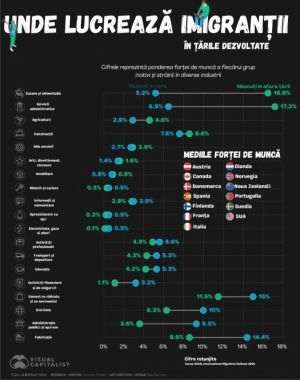In what could be viewed as a victory of the EU leaders against the danger of a referendum being held in Greece, even the Greeks themselves are hostile to the new Greek PM Lucas Papademos, as demonstrated by a poll published on Friday by "Athens news", after the government won the vote of confidence on Wednesday night. The coalition consisting of the New Democracy, Pasok and Laos parties, controls 253 seats in the Parliament, out of a total of 300.
Compared to a previous poll, published ten days earlier, Pasok fell from 15% to 11.8% among the preferences of the Greeks, the New Democracy Party slid from 22.5%, to 21.2%, and Laos fell from 5.7%, to 5.2%, showing the Greeks' suspicion (which the Parliament is meant to represent), that the agreements with the EU concluded by the new Government do not really have the best interests of Greece at heart.
That conclusion is obvious, given the fact that 60% of the pollsters agree that Papademos, former vice-president of the European Central Bank is Greece's best chance to remain in the Eurozone, so his slide in the polls can only be explained by the high number of Greeks who want a return to the Drachma.
• CLEAR NUMBERS, UNCLEAR MEANINGS
Papademos' first goal is to guarantee the legendary tranche of 8 billion Euros, promised by the partners in the Eurozone and by the IMF, about which his predecessor, Giorgios Papandreou had claimed, in mid-September, that it was absolutely necessary, because the Greek state only had money left for two weeks, and then the country would be officially bankrupt (which is something it has actually been for a while now) and it's now been two months since that time and Greece did not receive the tranche and without being called officially bankrupt (which is nothing surprising when we look at the standard European practices this year, just like no one notices that the October 1st maturity, when Greece should have been officially bankrupt, was pushed down to December 1st, even though it never received any money all this time).
It is said that that amount would be enough for Greece until March, which is when the term of the Papademos cabinet expires.
The second task of Papademos is to obtain the aid of 130 billion Euros, which was confirmed again on October 26th/27th by the European Union, in the agreement of Brussels, which involved the heads of the EU states, the leaders of the European Commission, the IMF and private banks, a topic which the former Greek PM Papandreou threatened to call a referendum over, sparking a huge scandal among the leaders of the European Union, which resulted in his resignation and the bringing of a new Greek executive - which speaks volumes of how current European leaders view the notion of "democracy".
Still, the Papademos cabinet can not be accused of conformism and docility when it comes to the interests of Greece's foreign creditors, as long as there is no alternative to the solution proposed in the agreement of October 26th/27th, which, in an apparently very generous provision, apart from the granting of the bailout package of 130 billion Euros, also includes the wiping of half of Greece's debt owed to private investors.
It is hard to tell, however, whether the cutting of the debt by half and the financial bailout, accompanied by the further tightening of the austerity measures which the Greeks had had to bear anyway, will be able to bring Greece back, after nine years of deprivation, to a ratio of 120% between its GDP and its debt, but the drastic nature of the deprivations is certain.
• A PATRIOTIC RACE AGAINST THE CLOCK
Thus, Lucas Papademos started a feverish patriotic race against the clock, starting the negotiations for the reduction of Greece's 200 billion Euros to private creditors, and on Wednesday night, after his appointment as PM, he met in Luxemburg, with the president of the Eurogroup, Jean-Claude Juncker, who coordinated the drafting of the agreement of November 26th/27th, scheduled a meeting for Monday with the president of the European Council, Herman Van Rompuy, and with the president of the European Commission Jose Manuel Barroso, and is set to return to Luxemburg on Tuesday, whereas the "troika" made up of the Eurozone, the European Central Bank and the IMF (represented by Matias Mors, Klaus Mazouch and Poul Thomsen) met on Saturday in Greece, with the leaders of the three parties which support the new government, all of it just to support the tranche of 8 billion Euros which we do not really whether it is necessary for anything else than just to avoid having to declare Greece officially bankrupt.
They look like negotiations under the threat of a public announcement, even though things are the same, with or without it.
• THE MONEY FROM THE GREEK BAILOUT PACKAGE WILL NOT STAY IN GREECE
Analysts have estimated that just 42 % of the bailout package of 8 billion will remain in Greece, whereas 58% will remain outside the country, starting from the assumption that the amount in question represents the quarterly rate needed by Greece.
A chunk of 19% of that bailout package will finance the country's expenses deficit (1.5 billion).
Greek creditors will receive 23% (a payment of 1.85 billion, on behalf of the 75 billion Euros which the Greek banks lent to the government and of the 25 billion borrowed from other Greek creditors).
For the 55 billion Euros paid by the ECB on Greek bonds, it will receive 18% of the 8 billion Euros bailout (1.45 billion).
Banks and foreign financial institutions estimate that they have lent about 175 billion Euros to Greece, meaning that they would receive 40% of the tranche (3.2 billion).
One billion Euros might as well be an ocean to a regular person, the equivalent of a lake for a country, and a small glass for a continent, which counts its debts in trillions; we do note, however, how Europe seems to be penny pinching, after flooding the continent with debt.
Of the European banks, the French are the most exposed to the Greek debt (55.7 billion Euros) according to data from June published by the BIS; they are followed by the German banks (21.4 billion), British (12.6), Portuguese (10.1), American (8.4), Dutch (4.4), Italian (3.7) and Swiss (3.4).
At first sight, it would appear that the French banks are the most interested in the well-being of Greece, because if it were to become solvent, then they would be able to get their money back, in fact, you would think that they would be willing to cut their debt, just so they can get back at least part of the money.
But finance is a little more complicated than that.
Finance succeeds in turning white into black.
Because, paradoxically enough, some of the creditor banks, including the French ones, would be the most interested in a Greek default.
Really interested...
• THE CREDITORS WHO WANTS THEIR DEBTORS TO DEFAULT
Some of the sovereign debt creditors have ensured their debt by buying CDSs (Credit Default Swaps) - a kind of "insurance policy" against the default of the debtor, an instrument which has existed since the beginning of the "90s, which expanded after 2003, and ended up having a turnover of 62 trillion dollars, in the beginning of 2008, drastically cut to 26.3 trillion, last year, by the effects of the subprime crisis, of which is it was one of the factors which started it.
One of the major differences between the classic insurance policies and CDSs is the fact that the owner of the CDSs is not required to have also owned the loan for which they are insured, and the value of the CDS can be several times higher than the value of the loan itself, and it is not reported to the market regulation authority.
If the CDS removes the reason for concern of the lender, because it means it will get its money anyway - either from the debtor, or (if the debtor defaults) from the seller of the CDS -, those who own CDSs without having lent any money very interested in the debtor defaulting, because if that happens, they would get back the equivalent value of money which they never lent in the first place.
Just as the borrowing market is transparent, meaning that we could see before who and to what amounts is exposed to the Greek debt, the CDS market is extremely opaque.
That is why we can't tell for sure whether the banks which lent money to Greece share its interests, or, to the contrary, they bought too many CDSs, which would bring them fabulous gains in the event of a Greek default.
It took them long enough, but on Friday, the European Commission announced that it is banning the use of "naked CDS" (meaning the use of CDS which do not accompany loans).
The commissioner for the unified market Michel Barnier said that "naked CDS" increase instability, accelerating the price swings of debt on the secondary market and that, even though they are not the main cause of the crisis, they are nevertheless worsening the price decline.
The problem is that the interdiction of the use of "naked CDS" is for now, just an "excommunication": it would only become effective one year from now, in November 2012.
Will Greece still exist by that time?
• A FAILED SCENARIO: THE RETURN TO THE DRACHMA - COMPARING TWO DISASTERS
Everyone got scared by the scenario published this summer by UBS, which said that the exit of any country from the Eurozone and the return to the national currency could be disastrous for any country that would attempt that, leading to a halving of the GDP, in the first year, followed by further drops in the coming years.
This caused everyone to conclude that an exit from the Eurozone is an impossible choice.
Still, no one tried to compare the disaster of an exit from the Eurozone, with the disaster that would result from remaining in the Eurozone.
Because what is being asked of Greece in exchange for the 130 billion Euros is a national disaster.
The idea is that, in exchange for this money and for the reduction of its debt, Greece would need to implement draconic austerity, which would allow it, by 2020, to reduce its sovereign debt from 200% of the GDP, to 120%.
What the Greeks had to put up with over these past few years, will be a piece of cake compared to what awaits them in the next nine years - no healthcare, no retirement, no cleaning and administrative maintenance, no clothes, no food, but a lot of work for which they will be underpaid.
In the end, it is debatable whether the 120% ratio will ever be reached, because the austerity regime will undoubtedly lower the GDP, meaning that in 2020, when today's Greek ten year olds become some extremely skinny, undereducated teens, Greece's only accomplishment will be that it would still be using the Euro on its territory.
On the other hand, if Greece defaults and leaves the Eurozone, Greece's debt suddenly falls to zero!
The ratio between the debt and the GDP instantaneously becomes zero.
On top of that, there is the 4% average interest rate which Greece was paying on the loan of 350 billion Euros, and which, under these circumstances, it would no longer be paying.
This would mean, in Euros, an additional 14 billion Euros, in the country's coffers.
Banks would have to be nationalized, which wouldn't pose such a great problem, because a large part of their risk is borne by the European Central Bank, but this would become a serious problem if the deposits would need to be secured.
The pensions would also be affected, but this would also have happened even if Greece remained in the Eurozone.
Financing for switching to the Drachma could easily be found in China, Brazil, India, Russia and South Africa, that is, in those very countries which, without refusing to help the Eurozone outright, are still avoiding giving a clear answer and are negotiating harshly with the European Union, bringing it to its knees.
It's clear that the Greeks would not be able to avoid austerity, not even if they brought back the drachma.
But it would make their contemporary history more meaningful.
Because it would allow them to keep their ancient pride untainted.





























































